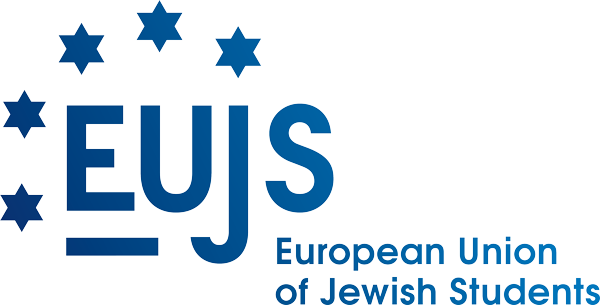8 January 2021
EUJS endorsed as a “best practice example” by the European Commission (EC) and the International Holocaust Remembrance Alliance (IHRA) amid the publication of the EC-IHRA handbook on the practical use of the IHRA definition of antisemitism.
The European Union of Jewish Students (EUJS) as the umbrella organisation of 160.000 young Jews in Europe greatly welcomes the European Commission (EC) publication, in partnership with the International Holocaust Remembrance Alliance (IHRA) as well as the Department for Research and Information on Antisemitism (RIAS), of the handbook for the practical use and application of the non-legally binding IHRA Working Definition of Antisemitism.
“Especially at times when antisemitism is dangerously on the rise across Europe, it is important for governments, Universities and other institutions and organisations to have tools to effectively combat antisemitism. We are proud that EUJS’ “How to Support your Jewish Students” Guide is included as a best practice example, showcasing the need to combat jew-hatred on campuses.” says EUJS President Bini Guttmann
Within the handbook, EUJS has been explicitly listed as a best practice model for its work in producing and rolling-out the EUJS guidebook entitled “How to Support your Jewish Students” designed for university administrative staff. In our guide, we call on universities to use and adopt the IHRA definition as a key reference point. Furthermore, our guidebook contains recommendations on establishing a reporting system on antisemitic incidents on campus, evaluating complaints about antisemitism, ensuring mandatory training for student union representatives and it calls on student unions to adopt policies on antisemitism in their by-laws.
The European Commission handbook itself, published in partnership with IHRA, provides an accessible and practical overview to the adoption and application of the IHRA definition. It showcases best practices and provides a checklist for effective use of the definition across various EU policy areas, including at an educational and university level.
For us, the endorsement and application of the IHRA definition forms a central part of our work as we engage with many non-Jewish youth organisations in antisemitism training sessions centred on the organisation’s adoption and application of the definition. For instance, in November 2020 we played a key role in the European Democrat Students’ (an organisation representing over one million students) adoption of the IHRA definition.
At EUJS, all too often we see universities being sites in which antisemitism is allowed to flourish meaning that Jewish students and Jewish student unions are the individuals and bodies facing antisemitism in its various forms. Therefore, we must move beyond the mere defining of the form of hate that we seek to combat – in this case antisemitism. We must also use and apply the definition so as to effectively educate others on what antisemitism looks like in the context of real-world incidents and how to work to combat it. The EC-IHRA handbook represents an objective and precise analysis on how to go about this process.






















